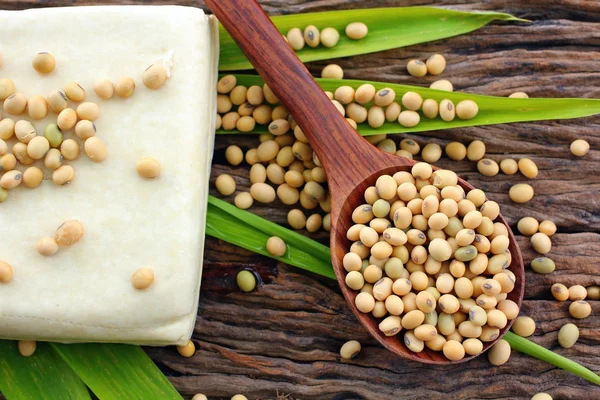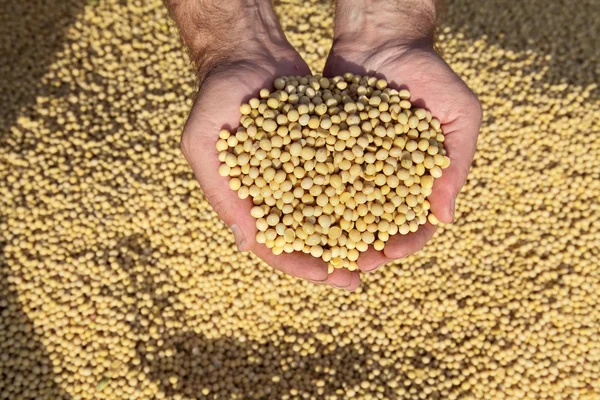Soybean Nutrition Facts, scientifically known as Glycine Max, have been cultivated and enjoyed for centuries, serving as a dietary staple in numerous global cuisines. These versatile legumes boast not only a rich array of essential nutrients but also a plethora of health advantages. Whether found in tofu, soy milk, or a diverse array of processed foods, soybeans have firmly established themselves as a key ingredient in our diets.
This article will embark on an exploration of the intriguing realm of soybeans, revealing their interesting facts, nutritional value, and potential health benefits. So, take a moment, sit back, and get ready to marvel at the remarkable world of the mighty soybeans!
Understanding the Basics

The Macronutrient Profile
Let’s kick off our exploration by scrutinizing the macronutrient content of soybeans. Soybeans boast a commendable balance of proteins, carbohydrates, and fats. A 100-gram serving typically contains around 36 grams of protein, making it an excellent plant-based protein source. The carbohydrate content hovers around 30 grams, providing a sustainable energy boost. Meanwhile, the fat content is dominated by heart-healthy polyunsaturated and monounsaturated fats.
Micronutrients at a Glance
Beyond the macronutrient spotlight, soybeans also shine when it comes to micronutrients. Packed with essential vitamins and minerals, they contribute significantly to meeting daily nutritional requirements. Soybeans are particularly rich in iron, calcium, magnesium, and phosphorus. These minerals play pivotal roles in bone health, nerve function, and overall metabolic activities.
Uncommon Terminology Unveiled
Isoflavones: The Unique Players
One of the standout features of soybeans is the presence of isoflavones, a class of compounds with potent antioxidant properties. These phytochemicals, including genistein and daidzein, have been linked to various health benefits. From supporting cardiovascular health to potentially mitigating certain hormonal imbalances, isoflavones add an extra layer of nutritional complexity to the soybean narrative.
Phytosterols: Cholesterol’s Challenger
In the labyrinth of Soybean Nutrition Facts, phytosterols emerge as unsung heroes. These plant-derived compounds bear structural similarities to cholesterol and, interestingly, compete for absorption in the digestive tract. This competition may contribute to the potential cholesterol-lowering effects attributed to soybeans.
Unraveling the Health Benefits
Heart Health Harmony
The intricate dance of nutrients within soybeans extends a helping hand to cardiovascular well-being. The high content of unsaturated fats, coupled with the cholesterol-modulating effects of phytosterols, positions soybeans as a heart-healthy dietary choice. Moreover, the presence of omega-3 fatty acids further cements their role in supporting optimal cardiovascular function.
Plant-Powered Protein Prowess
For individuals embracing a vegetarian or vegan lifestyle, soybeans emerge as a protein powerhouse. The quality of protein found in soybeans is comparable to that of animal sources, making it an invaluable addition to plant-based diets. This becomes especially crucial for meeting amino acid requirements and supporting muscle health.
Hormonal Harmony
The isoflavones found in soybeans are renowned for their potential role in hormonal balance. Particularly for women experiencing menopausal symptoms, incorporating soy-based foods may offer a natural avenue for alleviating discomfort. The phytoestrogens present in soybeans interact with estrogen receptors, providing a modulating effect that can be beneficial in certain hormonal contexts.
Demystifying Misconceptions
Myth: Soy and Hormonal Imbalance
Despite the wealth of nutritional benefits, soybeans have faced unwarranted skepticism regarding their impact on hormonal balance. Contrary to popular belief, the phytoestrogens in soy do not mimic human estrogen but rather exert a modulating influence. Extensive research suggests that moderate soy consumption is unlikely to disrupt hormonal equilibrium and may, in fact, offer protective effects.
Myth: Anti-Nutrients in Soy
Some critics raise concerns about anti-nutrients present in soybeans, such as trypsin inhibitors and phytic acid. However, these compounds are neutralized through cooking or fermentation. In traditional soy-based foods like tofu and tempeh, these anti-nutrients are effectively minimized, highlighting the importance of culinary preparation methods.
Incorporating Soybeans into Your Diet
Culinary Adventures with Soy
Harnessing the nutritional benefits of soybeans extends beyond a simple addition to salads. Exploring the diverse world of soy-based foods opens up a spectrum of culinary possibilities. From the velvety texture of tofu to the nutty crunch of roasted soybeans, incorporating this legume into your diet can be a delightful and nutritious journey.
Soy in Global Cuisine
Soybeans have transcended geographical boundaries, becoming a staple in various global cuisines. From the soy-infused delicacies of East Asia to the soy-based innovations in Western plant-based cuisine, the adaptability of soybeans adds a rich tapestry of flavors and textures to culinary landscapes worldwide.
Here is a table that shows the nutritional value of 1 cup (172 grams) of cooked soybeans:
| Nutrient | Amount | Percent Daily Value (%) |
|---|---|---|
| Calories | 227 | 11% |
| Fat | 10.3 g | 16% |
| Saturated fat | 1.3 g | 6% |
| Monounsaturated fat | 1.9 g | 10% |
| Polyunsaturated fat | 5.1 g | 10% |
| Cholesterol | 0 mg | 0% |
| Sodium | 18 mg | 1% |
| Potassium | 728 mg | 16% |
| Carbohydrates | 24.5 g | 8% |
| Fiber | 10.1 g | 40% |
| Sugar | 4.6 g | 5% |
| Protein | 28.6 g | 57% |
| Vitamin C | 10 mg | 11% |
| Folate | 116 mcg | 29% |
| Iron | 8.8 mg | 49% |
| Magnesium | 80 mg | 20% |
| Phosphorus | 276 mg | 20% |
Soybeans can be enjoyed in a variety of ways, such as:
- Roasted or boiled
- Added to salads or stir-fries
- Made into tofu or tempeh
- Used to make soy milk, soy sauce, or miso
Soybeans are a healthy and versatile food that can be a great addition to your diet.
The Verdict: Soybean Nutrition Unveiled
In the grand tapestry of nutrition, Soybean Nutrition Facts stand out as a testament to the multifaceted benefits packed within this unassuming legume. From its protein prowess to the nuanced interplay of isoflavones and phytosterols, soybeans offer a nutritional symphony that resonates with health-conscious individuals seeking a diverse and plant-powered dietary landscape. As we navigate the realms of macronutrients, micronutrients, and uncommon terminology, it becomes evident that soybeans have rightfully earned their place as a nutritional cornerstone in the modern diet. So, the next time you savor a dish adorned with soybeans, relish not just the flavor but the nutritional wisdom woven into each bean.
Frequently Asked Questions (FAQs)
Are soybeans suitable for individuals with soy allergies?
Individuals with soy allergies should avoid consuming soybeans and soy-based products. Soy allergies are relatively common, and the consumption of soy can trigger allergic reactions, ranging from mild to severe.
Can soybeans be enjoyed by people following a gluten-free diet?
Yes, soybeans are naturally gluten-free and can be safely consumed by individuals following a gluten-free diet. However, it’s essential to check food labels and avoid processed soy products that may contain gluten-containing ingredients.
Are soybeans genetically modified?
Soybeans are one of the most commonly genetically modified crops. It’s important to be mindful of the sourcing and choose organic or non-GMO certified soybeans if you prefer to avoid genetically modified organisms (GMOs).
Can soybeans be enjoyed by individuals with lactose intolerance or dairy allergies?
Yes, soy-based products such as soy milk and tofu are suitable alternatives for individuals with lactose intolerance or dairy allergies. Soy milk can be used as a dairy-free milk substitute in various recipes.
How can I incorporate soybeans into my diet?
There are numerous ways to enjoy soybeans in your diet. You can try tofu stir-fries, soy milk smoothies, roasted soybeans as a snack, or even explore traditional soy-based dishes from various cuisines around the world.
Read Also | 25 Life-Changing Mediterranean Diet Recipes for Healthy Eating
Note: This article is written based on scientific evidence found by the 247newsaroundtheworld.com team. Sources are duly referenced with keywords hyperlinked to source websites and are clickable for reference.
Last Updated on January 11, 2024 by 247 News Around The World






